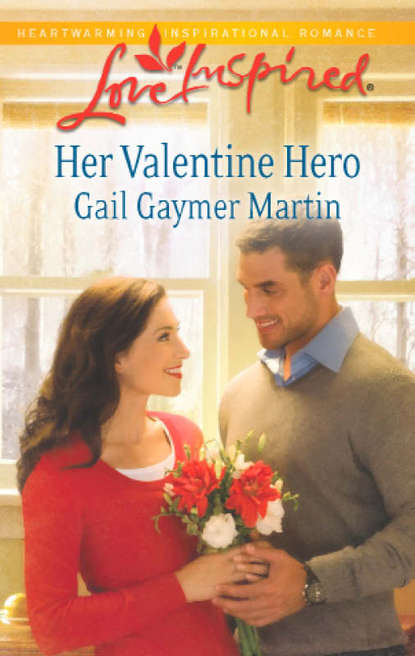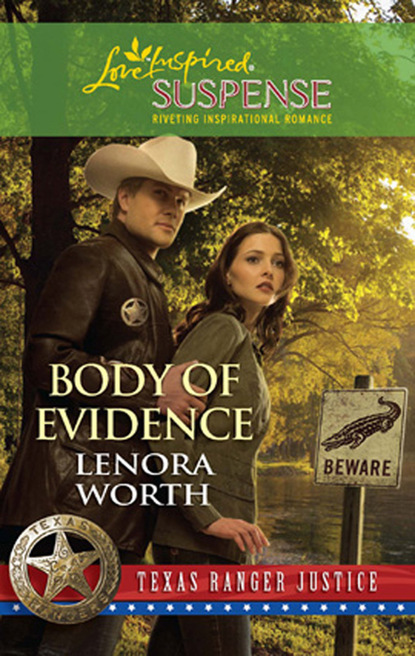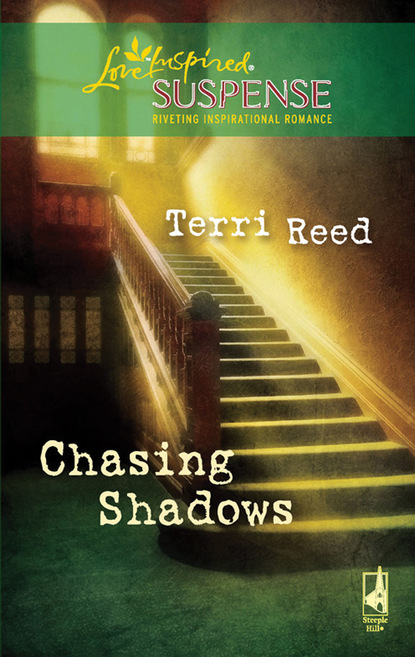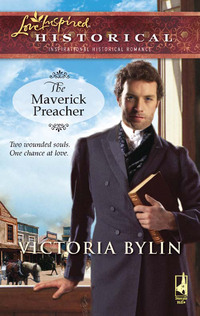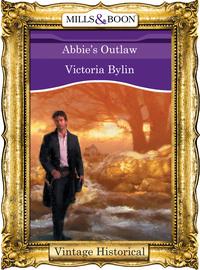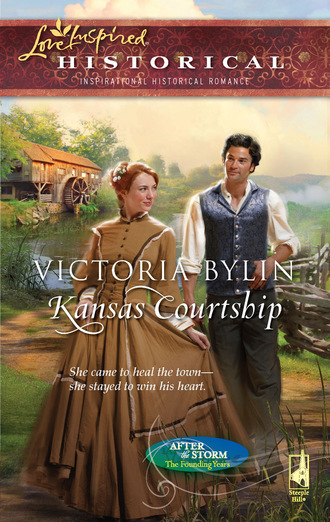
Полная версия
Kansas Courtship

“You tricked me.”
“You tricked yourself,” Nora said mildly. “You jumped to a conclusion.”
“A logical one,” Zeb said.
“A biased one.”
“You knew I’d think you were male.”
“You’re right.” She wrinkled her nose like a little girl. “I apologize.”
She looked downright cute. Zeb wanted to kiss her. The thought made him crazy. What was he thinking? She was an uppity know-it-all woman. She had too much education and too much ambition. The next woman he kissed would be his future wife, whoever annoyed him the least. Dr. Mitchell annoyed him the most.
“You’re hired for one month. Make it work or get out.”
AFTER THE STORM:
THE FOUNDING YEARS
A tornado can’t tear apart the fabric of faith and love in a frontier Kansas town
Kansas Courtship—
Victoria Bylin, March 2010
VICTORIA BYLIN
fell in love with God and her husband at the same time. It started with a ride on a big red motorcycle and a date to see a Star Trek movie. A recent graduate of UC Berkeley, Victoria had been seeking that elusive “something more” when Michael rode into her life. Neither knew it, but they were each reading the Bible.
Five months later they got married and the blessings began. They have two sons and have lived in California and Virginia. Michael’s career allowed Victoria to be both a stay-at-home mom and a writer. She’s living a dream that started when she read her first book and thought, “I want to tell stories.” For that gift, she will be forever grateful.
Feel free to drop Victoria an e-mail at VictoriaBylin@aol.com or visit her Web site at www.victoriabylin.com.
Kansas Courtship
Victoria Bylin

MILLS & BOON
Before you start reading, why not sign up?
Thank you for downloading this Mills & Boon book. If you want to hear about exclusive discounts, special offers and competitions, sign up to our email newsletter today!
SIGN ME UP!
Or simply visit
signup.millsandboon.co.uk
Mills & Boon emails are completely free to receive and you can unsubscribe at any time via the link in any email we send you.
Special thanks and acknowledgment to Victoria Bylin for her contribution to the AFTER THE STORM: THE FOUNDING YEARS miniseries.
Thanks be to God who always leads us in triumph in Christ, and manifests through us the sweet aroma of the knowledge of him in every place.
—II Corinthians 2:14
For my grandmothers,
Ethel Kennedy Bylin and Cecille Jewel Vickers
Nana Bylin bought me books
And Grandma Vickers gave me a love of writing
Eternal love to you both!
Contents
Prologue
Chapter One
Chapter Two
Chapter Three
Chapter Four
Chapter Five
Chapter Six
Chapter Seven
Chapter Eight
Chapter Nine
Chapter Ten
Chapter Eleven
Chapter Twelve
Chapter Thirteen
Chapter Fourteen
Chapter Fifteen
Chapter Sixteen
Chapter Seventeen
Chapter Eighteen
Chapter Nineteen
Chapter Twenty
Chapter Twenty-One
Chapter Twenty-Two
Chapter Twenty-Three
Chapter Twenty-Four
Epilogue
Questions for Discussion
Prologue
June 1860
High Plains, Kansas
Zeb Garrison didn’t think much of church or preachers. Still, he had to give Reverend Preston credit for striking a chord that hadn’t stopped echoing since Sunday morning. Zeb had been sitting in the back pew, alone because he’d overslept and his sister, Cassandra, had left without him. He’d been half asleep when the reverend jarred him awake with a single statement.
If you died tomorrow, what would you leave behind?
The reverend hadn’t shouted the words. He hadn’t even raised his voice. He’d made a statement, but the question had stayed in Zeb’s mind for five solid days as he went about the business of running Garrison Mill. It hung there now, dangling like a ripe apple ready to drop.
Positioned at the standing desk in his mill’s office, a custom piece of furniture built to match his height, Zeb dragged his hand through his dark hair. He needed a haircut, badly. As always, he’d put it off to the point of rebellion. A glance at the wall clock told him the town barber would be open, but a look out the window confirmed what he’d noticed earlier. Bad weather was coming. Fast. Through the window, he saw clouds racing across the grasslands, picking up speed like a runaway horse.
He had no desire to get stuck at the mill in a storm. His workers had finished early and he’d sent them home to their wives and families. Zeb had no such obligations, beyond his responsibility to his sister. It was better that way. Females, he’d learned, were treacherous. Frannie, his former fiancée, had taught him that painful lesson.
Instead, he’d poured his soul into building Garrison Mill. Along with his friend Will Logan, Zeb had founded High Plains eighteen months ago. Someday the town would be a hub for farms and businesses. Once the wheat crops became plentiful, he’d turn the sawmill into a gristmill. Eventually he’d be shipping flour all over America.
The thought humbled him. Who’d have thought a poor kid from Bellville would ever own a mill? Zeb owed everything to Jon Gridley, a renowned Boston millwright. Pleased to have a protégé, Gridley had filled Zeb’s head with the mechanics of gears and water power. When the old man died, he’d left everything to Zeb, making him a rich man in spite of his humble beginnings. With wealth came a burden Zeb hadn’t expected. If Garrison Mill succeeded, High Plains would prosper. If it failed, the town could turn to dust. Not an hour passed that he didn’t feel responsible for the families he and Will had brought west.
Zeb walked to the window and studied the sky. If he hurried, he could get home before the storm struck. Frowning, he lifted his broad-brimmed hat from a wooden peg, locked the door behind him and stepped into the yard. What he saw sucked the air from his lungs. Funnel clouds were reaching down from the sky like bony fingers. Twisting. Turning. White and gray, they looked like a hand ready to snatch innocent victims from the earth. Zeb froze in amazement. He’d heard about twisters, but he’d never seen one.
In a blink, the storm turned and picked up speed. The fingers were coming for him. Blood rushed to his brain and he ran back to the mill for cover.
Will had cautioned him to build a cellar for such an event, but Zeb had been arrogant. He had only one place to hide, his office, and he’d locked the door. Fumbling for the key, he heard a roar unlike anything he’d ever heard. The wind grabbed at his coat. Twenty feet away, a stack of shingles exploded into a flock of birds.
Fumbling, he found the key and turned the knob. As the door opened, the wind ripped it from its hinges and shoved him to his belly. He couldn’t breathe. He could only lay sprawled on the floor, twisting to put his back against the wall as he watched the chaos of the wind.
One thought came to him, only one. If he died today, who would care? What would he leave behind? A pile of rubble, that’s what. Loneliness whipped through his soul with the force of the wind. Cassandra would miss him, but someday she’d marry.
And he himself? He’d have sawdust and splinters. A black wind hurled debris past the open door. No sons or daughters. A wagon somersaulted and broke apart. More shingles flew by, a hundred of them. Hail pounded the roof, and the window blew out. The mill groaned as it fought to stand. He heard the waterwheel going berserk and the clatter of gears.
As suddenly as the tornado struck, the wind stilled. In the silence, he heard the soft echo of Reverend Preston’s question and thought of that dangling apple. The storm had knocked the ripe fruit to the ground, forcing Zeb to admit to a need. If he died tomorrow, he wanted to leave behind more than splinters. He wanted a son to carry on the Garrison name. If it meant putting up with a wife, so be it.
Chapter One
August 1860
High Plains, Kansas
“Look over yonder, missy,” said the old man driving the freight wagon. “That’s where the twister snatched up those children.”
Dr. Nora Mitchell turned on the high seat. With the dusty bonnet shielding her eyes, she looked past Mr. Crandall’s gray beard to a lush meadow. A breeze stirred the grass and she smelled loamy earth. With the scent came a whiff of the mules pulling the three freight wagons the last miles to High Plains. In her black medical bag she had the precious letter from Zebulun Garrison inviting her to interview for her first position as a paid physician.
If, that is, he’d overlook that she’d signed her letter to him as “Dr. N. Mitchell.” Her gender made no difference when it came to practicing medicine, but it mattered terribly to men with old-fashioned ideas.
She’d lived with that prejudice since the day she’d entered Geneva Medical College, the alma mater of Elizabeth Blackwell, the first female doctor in America. The prejudice had become even more challenging once she graduated. She’d interviewed for fourteen positions in the past year and received fourteen rejections, all because of her gender.
You’re female, Dr. Mitchell. That makes you unqualified.
Women shouldn’t be subjected to the vulgarities of medicine.
Perhaps you can find work as a midwife. That would suit you as a woman.
She’d been close to despair, when a cousin wrote to her about an advertisement in the Kansas Gazette.
Wanted: a licensed physician for a new Kansas town. Compensation dependent on experience. Contact Zebulun Garrison, High Plains, Kansas.
She’d posted a letter to Mr. Garrison immediately. Not only had he offered “Dr. N. Mitchell” an interview, he’d sounded enthusiastic. “Our current doctor is retiring,” he’d written back. “We are a growing community in need of a skilled practitioner with an adventurous spirit.”
Nora had pictured bustling shops and a busy church. She’d imagined delivering babies, setting broken bones and treating croup and sore throats. Those expectations had changed as she’d traveled with the Crandalls. She’d split the riding time between Mr. Crandall and his wife, a buxom woman who’d birthed nine children and never stopped talking. As they’d traveled from Saint Joseph to Topeka, south to Fort Riley and on to High Plains, the woman had told horrific tales about Kansas weather. Two months ago, a tornado wiped out half of High Plains and devastated a wagon train. Most frightening of all, it had snatched away a set of eight-year-old orphan twins, traveling with one of the families on the wagon train. According to Mr. Crandall, the last person to see the twins, a young girl named Bess Carter who now lived in High Plains, had been so horrified by what had occurred that she hadn’t spoken since.
Nora knew how it felt to have someone taken without warning. When she was ten years old, her younger brother died of asthma. Grief-stricken, she’d looked at the stars and told God she wanted to be a doctor. When a meteorite shot across the sky, she’d taken it as a sign of His blessing.
She still felt blessed, but the road to this moment had been harrowing. At Geneva Medical College, she’d endured pranks ranging from crass to cruel. She’d tolerated ridicule from professors and mockery from fellow students. She’d also lost friends. Women with whom she’d grown up called her unladylike and turned their backs. Hardest of all, she’d lost some of her father’s affection.
Is it worth it, daughter? You should be attending dances and teasing young men. You should be seeking a husband.
She had, but the search for a spouse had been as futile as her hunt for a position as a doctor.
Nora wanted a husband and family as much as any woman, but the men who courted her hadn’t respected her career. To her father’s chagrin, she’d turned down two proposals including one from his business partner, a man named Albert Bowers, when the men had insisted she stop practicing medicine after she was wed. Mr. Garrison’s letter had arrived two days after Nora refused Albert’s offer. She’d danced around the room, waving the letter under her father’s nose while her mother wrung her hands with worry. With her life in pieces, much like the devastated wagon train, Nora had written back immediately to confirm the interview.
Now here she was…perched on a splintery wagon seat next to Mr. Crandall, facing the aftermath of a tornado. No physician in the world could have stopped the suffering. The Lord alone gave life and took it away. Whatever gift Nora had for healing, she never lost sight of the one true Healer.
Mr. Crandall shouted “whoa” and reined the mules to a halt. As the wagons rattled to silence, he removed his hat and held it over his heart. “Ladies and gentlemen,” he bellowed to the other wagons. “Let us pray.”
As Nora bowed her head, Mr. Crandall spoke to the sky. “Father God, we pray for mercy for the injured and the lost, especially those two children, Mikey and Missy. We pray they would be found. We pray for Your hand on their tender lives. Amen.”
“Amen,” she whispered.
A chorus of “amens” echoed from Mrs. Crandall and the four children she had with her. As Nora looked again at the empty meadow, Mr. Crandall jammed his hat on his balding head, gave the reins a shake and shouted at the mules. The wagons rolled forward, creaking as they stumbled in ruts. Awed by the vastness of the land, Nora contemplated the next step in her journey.
Within the hour, she’d meet Mr. Garrison. The tone of his letter had been terse, his penmanship bold. As she’d traveled from New York, enduring grime and crowded trains, she’d imagined their meeting. Judging by his responsibilities, she pictured him as a man in his middle years, perhaps portly with a balding head like Mr. Crandall. Her belly churned as she contemplated their first encounter. If necessary, she’d fight for her right to be a doctor, but the battle would take a toll.
She’d had little experience with Westerners until meeting the Crandalls. They were decent folk but unschooled. She figured Mr. Garrison came from the same hardworking stock. He could read and write, but she doubted he’d appreciate the book of poetry in her satchel, or the oil painting she’d brought to remind her of home.
“There’s Garrison Mill,” Mr. Crandall called in a booming voice. “That’s the start of High Plains.”
Nora sat higher in the seat. Straining her neck, she saw a two-story building on the river. Half the shingles were new, a sign of the tornado’s damage. On the river side, she saw a waterwheel turning with the lazy summer current. Mr. Garrison may be unschooled, but he clearly had a keen intelligence to build a mill. It also took money, a sign he was older, as she’d imagined.
As the wagons rolled closer to town, she saw more signs of devastation. Along the river, families were living in tents and wagons. A few had constructed shacks from storm-damaged boards of different colors. Down the road she saw a whitewashed school, miraculously untouched. Farther in the distance, she saw a steeple pointing to the bright blue sky.
At the edge of town, a rough sign identified a dirt road as Main Street. Back east, main streets were cobbled and alive with business. This one looked haggard, but she sensed pride in the sign. Soon she’d meet the people she’d come to serve. Would they accept her? Not at first, but she could win their hearts. She felt sure of it.
First, though, she had to win over Mr. Garrison. She wanted to look professional, so this morning she’d put on her New York best. Under the duster she’d bought for the wagon ride, she wore a bottle-green jacket with pagoda sleeves, a white shirtwaist and a narrower-than-usual skirt. She’d gladly left her crinolines in New York, along with the navy suits she’d worn in medical college. In her satchel she had a porkpie hat with a feather. When Mr. Crandall stopped the wagon, she’d whip off the bonnet, slip out of the duster and pin the hat to her red hair. Then, with her medical bag in hand, she’d go in search of Mr. Garrison.
When they reached a mercantile, Mr. Crandall reined in the mules. As the wagon lurched to a halt, Nora lifted her hands to unbutton the duster. She’d worked the first button, when she spotted a tall man with dark hair striding in her direction. Dressed in black trousers, a white shirt and a brocade vest, she judged him to be a local businessman. As he neared the wagon, he looked at her, not once but twice.
She didn’t believe in love at first sight, but she believed God had someone special for her. Looking at the tall stranger, she felt a hitch in her belly and wondered…Could he be the one? When the man slowed his steps, she wondered if he’d offer to hand her out of the wagon. She imagined her gloves growing warm at his touch, the strength of his hand as he’d guide her to the street. She’d never been shy, but neither did she want to be considered brazen. Her father’s words rang in her head.
Mind your tongue, Nora. You’re too outspoken for a lady.
Maybe, but some things had to be said. Some risks had to be taken.
As the man neared the wagon, she smiled.
He tipped his hat in reply. “Good afternoon, miss.”
“Good afternoon,” she answered.
Mr. Crandall greeted the man with a nod. “Howdy there, sir. How’s it going for ya?”
“Excellent. I trust you had a good trip?”
“The finest,” Mr. Crandall replied. “If you’ll excuse me, I’ve a wagon to unload.”
The freighter, more concerned with his delivery than social graces, hopped off the seat without introducing her.
The man in the vest propped an arm on the edge of the wagon and planted a boot on the wheel. His green eyes held a mix of mirth and intensity.
Nora’s cheeks flushed pink.
He smiled at her. “You’re new in town.”
“I am.” She wanted to know this man, but she didn’t want to introduce herself to anyone—especially not as Dr. Nora Mitchell—until she met Mr. Garrison. She hoped to see this man again, but she needed to be on her way. She indicated the step down from the wagon. “If you’ll excuse me—”
“Allow me.” With a roguish smile, he offered his hand.
Nora saw a spark of fun in his eyes. The pale green reminded her of waving grass, but the rugged line of his jaw testified to his boldness. So did the strength of his hand when she gripped his fingers.
“Thank you, sir.”
As she dropped to the street, the duster caught on her medical bag and she stumbled. He caught her waist with both hands, steadied her and stepped back. Rugged or not, he had the air of a gentleman.
“Welcome to High Plains,” he said. “I’m—”
“There you are!”
They both turned to the mercantile where a petite blonde was coming through the door. Clad in a royal-blue gown with snow-white piping, the woman wore a porkpie hat that matched the one in Nora’s satchel. She couldn’t have been lovelier…or more feminine. In the duster and bonnet, Nora felt drab.
Her gaze drifted back to the man. In his eyes she saw an aloofness that reminded her of her professors in college.
“Hello, Abigail,” he said.
“Oh—Oh no!” The blonde swayed on her feet. Her eyes fluttered shut, and her knees buckled in the start of a swoon. Nora rushed forward to catch her. So did the man. He reached her first and caught her in his arms. As he lowered her to the planking, Nora grabbed her medical bag and charged to her side, whipping off her bonnet when it impeded her vision.
She checked the woman’s pulse and found it to be normal. She looked for perspiration and saw only a summer sheen. Next she glanced at the bodice of the blue dress. In New York she’d seen women faint because of too-tight corsets. Nora loathed fashion that harmed a woman’s health. She suspected this woman had submitted to such an indignity, but a quick run of her fingers along the woman’s rib cage revealed no such encumbrance.
The blonde had swooned for no apparent reason…or had she? Nora looked at the man crouched next to her. His dark hair brushed the rim of his collarless shirt, a linen garment that clung to broad shoulders and well-muscled arms. Black boots, scuffed but made of fine leather, tightened on his calves as he crouched. Gone was the charming stranger. In his place was a man with a smirk, a look she associated with arrogant men…handsome men. Had the woman swooned to get his attention? It wouldn’t have surprised her.
The blonde stirred, blinking as if she couldn’t focus until she found the man’s face.
“Zeb?” she murmured. “Is that you?”
Nora gasped. How many Zebs could there be in High Plains? Please, Lord. Don’t let this man be the one. Knowing she couldn’t hide from the truth, she lifted her chin. “Are you Mr. Zebulun Garrison?”
His eyes traveled to her medical bag, and back. He frowned. “I am.”
“I’m—”
“You’re Dr. N. Mitchell,” he said coldly. “And you’re a liar.”
“I am not!” She wanted to settle the matter now, but the blonde needed her attention. Nora turned to her patient. “I’m Dr. Nora Mitchell.”
“Get away from me!” the woman declared.
“I’m a doctor.”
“You’re a woman,” she complained. “You can’t be a doctor.”
“I’m fully trained, Miss—?”
“Miss Johnson,” she said coldly. “Abigail Johnson.”
Nora gripped the woman’s wrist, retook her pulse and detected no change. “Did you eat breakfast today?”
“Of course.”
Nora surmised the woman to be single. She wouldn’t ask about pregnancy directly, but it had to be considered. “Have you been ill, perhaps nauseous on occasion?”
The blonde glared at her as she sat up. “That’s a rude question to ask. Zeb, would you help me? I want to go inside.”
“Of course.” He sounded gentle, even sweet.
Nora surmised they were close and wondered if they were courting. She also recalled the way he’d looked at her. Zebulun Garrison was either weak willed or a womanizer. Either way, she didn’t like him.
As he stood, so did she. Their gazes slammed together at an angle, reminding her of his height. In addition to wide shoulders, he had a strong jaw and sharp cheekbones. Her professional eye told her his nose had never been broken. Her female eyes noticed he hadn’t shaved in a few days. He was not middle-aged, portly or balding.
His frank gaze reminded her of her own lackluster appearance, and she became acutely aware of what he was seeing…a woman with red hair in a dirty coat. She didn’t appreciate his critical stare, especially after the way his eyes had initially sparked with male interest. As dusty as a prairie dog, she stared back to remind him of his manners.
His gaze narrowed with disgust. As he lowered his chin to speak, Abigail waved for attention. “Zeb?” she murmured.
Looking irked, he gripped the blonde’s gloved fingers and lifted her, steadying her as she swayed. Abigail Johnson didn’t fool Nora for a minute. The woman had faked a swoon to gain Mr. Garrison’s attention. Judging by his demeanor, he knew this as well.
After steadying the blonde, he turned back to Nora. His lips thinned to a line. “The interview’s over, Miss Mitchell. You’ll be leaving with the Crandalls.”
“No, sir,” she answered. “I will not be leaving. You promised me an interview. I expect a chance to prove myself.”
“You just did, Dr. N. Mitchell.”
“I never said I was male. You assumed—”


